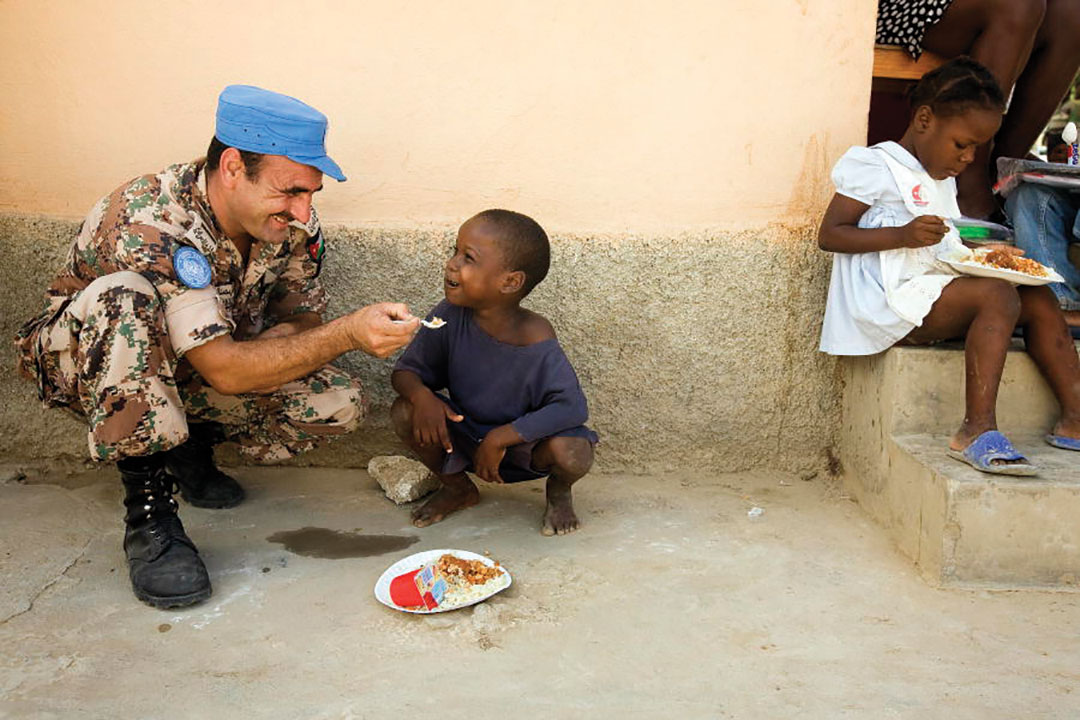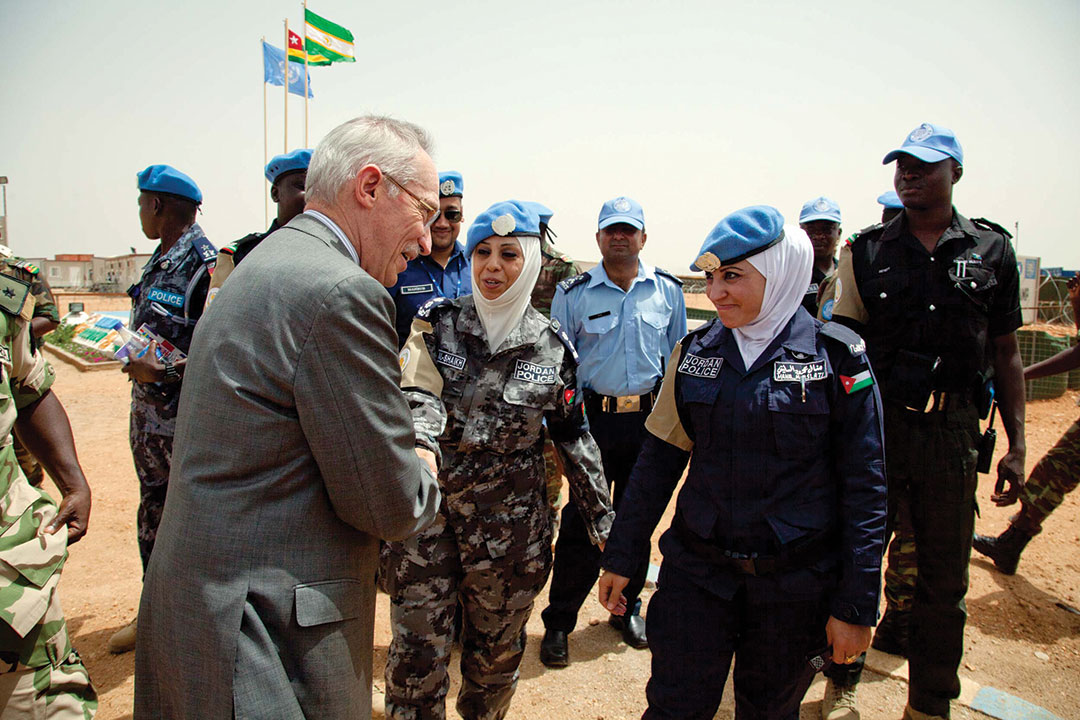International Engagements of the Jordan Armed Forces
Contributions beyond the country’s borders support stability and peace
Jordanian Staff Col. Muqtader Abdul Rahim Al-Hijjawy, Senior National Representative to U.S. Central Command Photos by United Nations
The Jordan Armed Forces play an essential role in international security and peacekeeping operations. With forces serving in Haiti and the Democratic Republic of the Congo, among other places, the Jordanian military has prioritized international service as a key component of its national strategy. My country believes that the mission of international peace and security is not the responsibility of one country alone or simply the responsibility of agencies such as the United Nations. Rather it is the responsibility and duty of all states.

For instance, Jordan ranks eighth in the world for its contributions to U.N. peacekeeping operations. As of February 2014, more than 3,260 Jordanians were supporting U.N. missions around the world. The largest percentage serves in Haiti, where they work to restore stability and security, strengthen government institutions and the rule of law, and promote and protect human rights.
The philosophy of Jordan’s military participation abroad stems from the country’s history and experience. Jordan Armed Forces, also known as the Arab Army, have participated in many regional wars, as well as operations to bring stability to brother Arab countries. Jordan’s was the sole Arabian army to participate in World War II.

Together, these experiences have given Jordan a clear understanding of the meaning of war and peace, the risks and consequences of migration, and the importance of supporting a secure and stable environment. Jordan is a moderate country located within a troubled region. Because of this, Jordan must continuously maintain vigilance to ensure regional peace and security, as well as to enhance national security.
The kingdom’s participation in international peacekeeping missions reflects the core of Jordan’s foreign policy that is based upon peace, justice, security and cooperation. These actions have enhanced the political status of Jordan internationally.
The Armed Forces benefit by gaining experience operating in different environments across the globe, ultimately contributing to an increased force capacity and environmental awareness. International service also allows the Jordanian military to build relationships and learn military doctrine of friendly forces across the world.
There are seven types of Jordanian international military participation:
1. U.N. Peacekeeping forces
- Peacekeeping forces
- Protection forces
- Rapid reaction forces
- Stabilization forces
2. Military observers
3. Civil police
4. Liaison officers
5. Standby forces
6. Multinational standby forces high-readiness brigade
7. Humanitarian and diplomatic participation
- Monitoring international elections
- Distributing humanitarian aid
- Conducting diplomacy
- Operating military field hospitals
For example, Jordanian forces work in Afghanistan to help bring and maintain lasting peace and stability. Part of Jordan’s role has been to train Afghan Soldiers and police officers to maintain order and uphold the rule of law. Military imams have also worked to spread peace by sharing the Amman Message, which calls for tolerance, unity and peace among Muslims. In addition, Jordan’s military female engagement teams work with Afghan women and children.
The benefits of international participation reach far beyond Jordan. By providing both manpower and aid, we are able to get closer to eradicating war and violence, as well as help the less fortunate who have been impacted by poverty, injustice or natural disasters.
Jordan’s officers and noncommissioned officers also get a chance to discover, develop and demonstrate abilities that contribute to increasing overall professionalism in the armed forces. International engagements allow the forces to work and train in difficult environments and security situations while learning disaster preparedness and emergency response management.

All this has helped prepare the Jordan Armed Forces to handle the massive influx of Syrian refugees during the past few years. Since 2011, hundreds of thousands of Syrians have fled violence and crossed into Jordan.
“We have had to deploy 850 Soldiers and officers round the clock with 450 vehicles. This humanitarian operation has so far cost 250 million dinars ($350 million) from the armed forces budget,” Brig. Gen. Hussein Rashid Al-Zyoud, commanding officer of the border troops, told Reuters.
In the first month of 2014, the general estimated that more than 10,000 refugees were crossing into Jordan each week. While keeping up with the steady flow of people has put a strain on Jordan’s resources, the country’s leadership and humanitarian support have been recognized by the world. In February 2014, Andrew Harper, the U.N. High Commissioner for Refugees’ representative to Jordan, commended the country’s military for providing protection and assistance to Syrians fleeing violence in their country. He described the Jordan Armed Forces as a “humanitarian model” in the region and praised Soldiers and border guards who spared no efforts to help and protect the Syrian refugees by providing food, shelter, medical care and other emergency aid.
In conclusion, I believe Jordan military participation internationally has both supported the country’s goals to promote global peace and stability and bolstered national security by building a force that is capable and prepared to confront any challenge. International participation has equipped Jordan’s forces with invaluable experience and training, as well as helped us develop friendships and relationships with militaries and people globally.


Comments are closed.